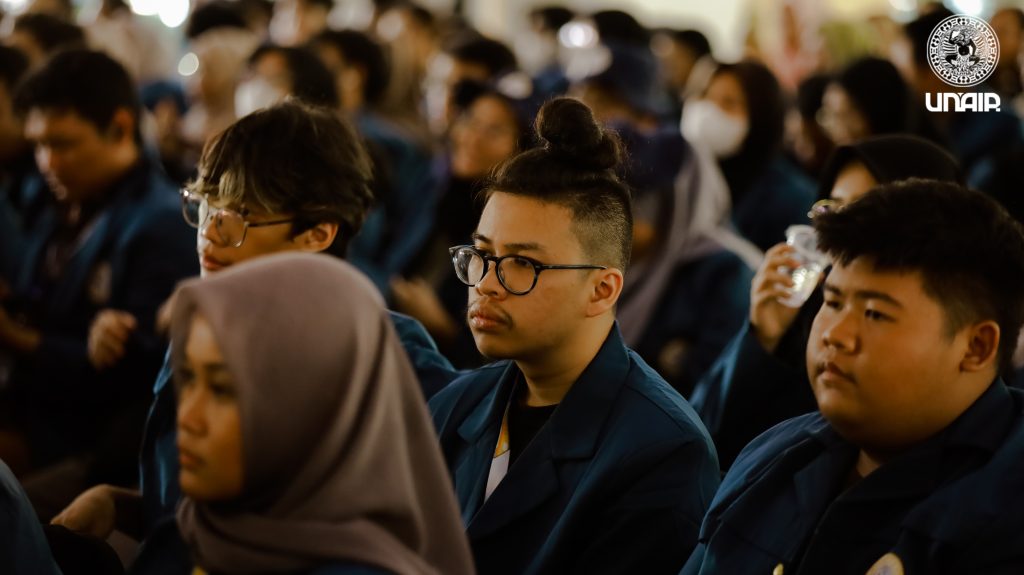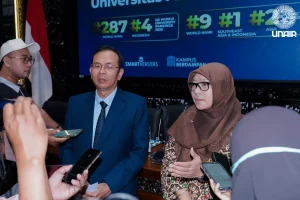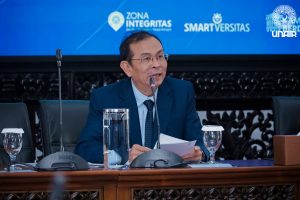UNAIR NEWS – The Community Service Program – Learning with Community (KKN-BBK) 3 spreads to several regions in East Java, including Banyuwangi, which starts from January 8 to February 4, 2024.
The Regency Government welcomed the students on Tuesday, January 9, 2024, at the Banyuwangi Regency Hall. Among the attendees were the Dean of FIKKIA UNAIR Prof Dr Soetojo dr Sp U(K) and Assistant for General Administration of Banyuwangi Regent, Choiril Ustadi Yudawanto, SIP, MSc.
In his welcoming speech, Prof Soetojo stated that the program allows students to apply the knowledge and theories they have learned in class to the community.
“It’s a part of a 3-credit course. We hope the multidisciplinary knowledge of our students can support and collaborate with the Banyuwangi Regency government to achieve better outcomes,” he said.
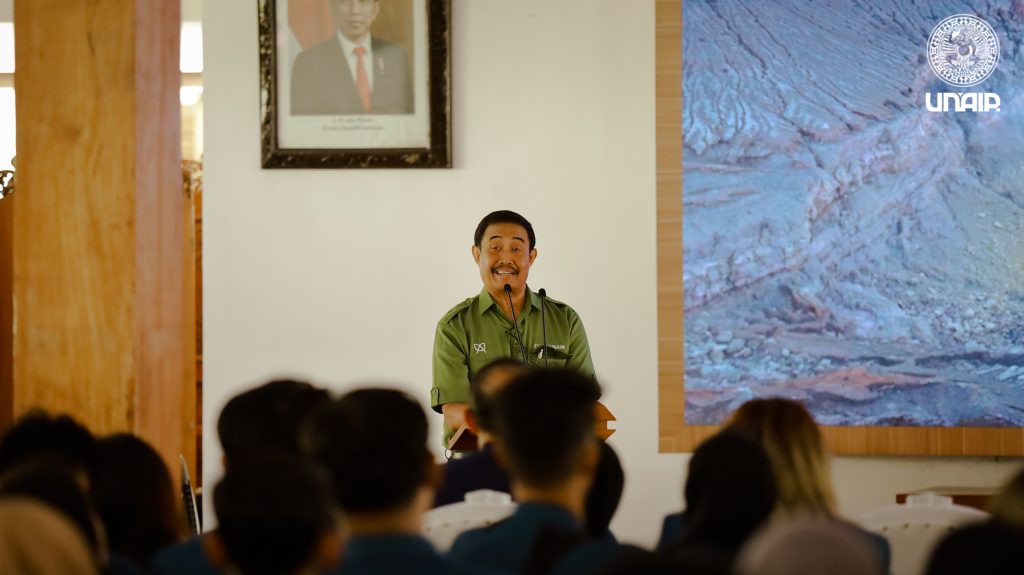
With KKN-BBK, students can also develop their knowledge. “Students can expand their knowledge on campus to become truly competent scholars,” he concluded.
Warm welcome
The Assistant for General Administration of Banyuwangi Regent Choiril Ustadi Yudawanto, SIP, MSc, representing the Regency Government, welcomed the students warmly. He explained the tourism potential of Banyuwangi.
“Every place is a destination; every destination has its attractions. What we are doing here promotes sustainability and traditionality. We may progress, but we still preserve our culture. Welcome to Banyuwangi,” he said.
The UNAIR Alumnus stated that Banyuwangi and the university have a long record of collaboration through the establishment of PDD, PSDKU, SIKIA, and now, FIKKIA UNAIR in Banyuwangi.
“We hope the students can adapt well here,” he said.
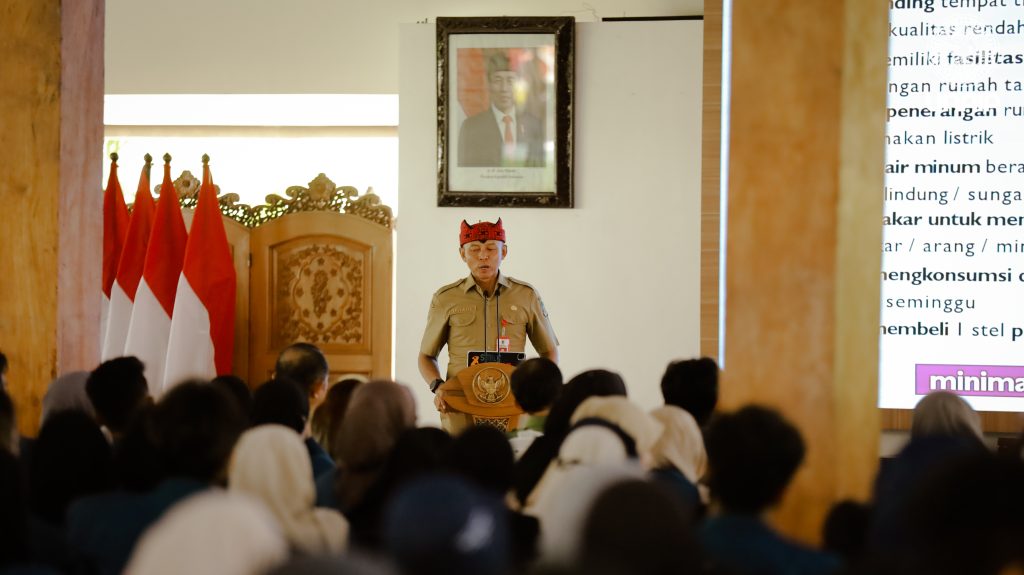
Choiril stated that the KKN-BBK UNAIR may help the government to reduce the poverty rate. “It’s a truest sense of learning. You are going to see the condition of the community with various social stratification,” he said.
The Regency Government has formulated three strategies for poverty reduction: reducing the expenditure burden of the poor, increasing their income, and breaking the cycle of poverty.
“Hopefully, we can conduct the program and make contributions to this matter. If students can successfully carry out the program, it will be a source of pride for them,” he concluded.
Author: Nuri Hermawan


